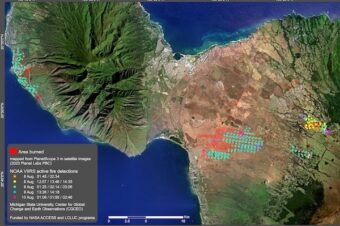Washington is bracing for another Wikileaks document dump later this week and the Pentagon is urging reporters not to publish the secret files from the Iraq war — once again, the conversation has turned to whether or not there’s a danger in releasing this information. But in a city full of fractious disagreements, there is one issue that nearly everyone in Washington agrees on: The overclassification of information in the name of national security has run amok. We need “effective measures to address the problem of overclassification,” President Barack Obama stated last year. “We do overclassify,” affirmed Director of National Intelligence James R. Clapper Jr. at his confirmation hearing this summer. “We can be a lot more liberal, I think, about declassifying, and we should be,” he added.
Excessive government secrecy is an evergreen concern — as far back as 1956, a Defense Department study complained that overclassification had “reached serious proportions.” This problem has serious ramifications throughout the vast national security bureaucracy. It impedes the flow of information across agency boundaries, obstructs the feedback mechanisms that keep policies and programs on track, conceals error and incompetence, undermines oversight and accountability, and fosters public ignorance on vital matters of national security and foreign policy.
Given the severity of this problem and the seemingly bipartisan will to devise a solution, it seems fitting that Congress passed — and the president signed into law on Oct. 7 — a set of remedial measures called the Reducing Over-Classification Act.
The new law mandates, among other things, that classifiers receive formal training in the proper use of classification, enlists agency inspectors general in overseeing the classification system, encourages the release of unclassified versions of certain intelligence, and creates a new position at the Department of Homeland Security to assist state and local officials in accessing information.
Facing a problem so deeply entrenched in the U.S. government, will the new act make any tangible difference? Forget eliminating the problem completely — will it even “reduce” overclassification, as its title modestly proclaims?
It almost certainly will. There is a real need for training in the proper exercise of classification authority, as the law requires, because tens of thousands of people currently implement classification procedures with minimal supervision. And by tasking inspectors general to participate in oversight of the classification system, it will multiply the number of sharp eyes on what material is classified several times over. In fact, each provision in the act is useful, and none seems likely to do any harm. Its passage is a notable achievement in a policy field that is littered with failed proposals.
Nevertheless, the new law also has profound shortcomings that illustrate the depth and complexity of this problem.
Paul Garrett Hugel
Technology Test Pilot
ORCID iD: 0000-0001-8082-7208 Paul Garrett Hugel on BlueSky @paul.nko.org
Latest posts from Paul Garrett Hugel
- Privacy-Preserving Data Collaboration: OpenMined Overview - November 16, 2025
- 🚨 The “No Kings” Protests: - October 18, 2025
- Environmental Groups Condemn EPA Plan to Rescind 2009 Climate Finding - July 29, 2025
Recent Posts
Privacy-Preserving Data Collaboration: OpenMined Overview
Unlocking Secure Data Collaboration: A Technical Introduction to OpenMined 1. How Privacy-Preserving Data Collaboration Solves... Read More
🚨 The “No Kings” Protests:
This week, something historic happened: nearly seven million people across 40+ countries marched against Donald Trump’s administration... Read More
Environmental Groups Condemn EPA Plan to Rescind 2009 Climate Finding
Executive Summary On July 29, 2025, EPA Administrator Lee Zeldin announced the agency’s intent to rescind the 2009... Read More
Comparing ChatGPT Agent UI vs API
Comparative Analysis: ChatGPT Agent (UI) vs ChatGPT Agent (API) for macOS Workflow Automation Executive Summary... Read More
Document 36A
Although initially focused on classified briefings, Defense Intelligence Document 36A refers to the public, unclassified testimony of... Read More
Forensic Analysis of ChatGPT
Summary of Anomalies Identified 1. Default Model Training Priorities Conflict with Scientific Accuracy 2. Memory... Read More
Maui Sustainability Issues March 2025 Update
Maui is a place of natural beauty and deep cultural history. But today, the island... Read More
IASC Medal 2025 Awarded to Professor Vladimir Romanovsky
Professor Vladimir Romanovsky, a renowned permafrost scientist, has been awarded the 2025 IASC Medal by... Read More

 RSS FEED–>
RSS FEED–> 







Leave a Reply